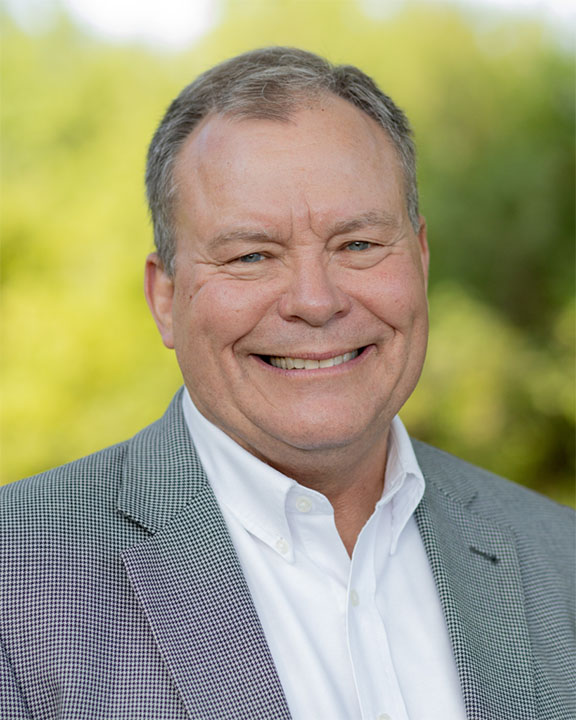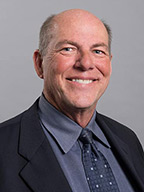The Need for Truthful Loving Conversations

Why the “Truthful, Loving, Conversations” (TLC) Series?
Welcome to the TLC Series of pamphlets by God Works, the content arm of Mission Partners Platform. These pamphlets and other resources found on Concordia Market (concordiamarket.com) are for the purpose of encouraging and educating God’s people for intentional, prayer-covered interactions with others on today’s challenging topics. They are written to equip the reader for Truthful, Loving, Conversations (TLC) in deepening relationships. We hope and pray that in these personal conversations, seeds of God’s saving Word will be sown. The Holy Spirit will tend and water these seeds with God’s great love and wisdom, mercy and grace.
We long for God’s lost ones to be found. God’s design is that we speak winsomely with friends, family members, and acquaintances. We are called to share the truth of God’s Word, especially the Gospel. The Gospel, after all, is relational—most relational. This is clearly demonstrated in God’s giving Jesus, His Son,"the Word made flesh” (Jn.1:1, 14) and His greatest message to humanity—for all times, for all places. God is love! (1Jn.4:16)
Mission Partners Platform (MPP) intends and hopes that our materials, discussions, programs, conferences, and collaborations might contribute to the restoration of the priority of our ‘missionary vocation’ and to the recognition of the missional ‘DNA’ of those born again of God. Like the Lord Jesus, our Savior and example, we are compelled by God’s love to run into the fire that is consuming our society, with the rescuing, saving news of God’s love and forgiveness.
We are committed to our missionary vocation because we know our Heavenly Father longs for “all people to be saved and come to the knowledge of the truth. (1 Tim.2:4) We are committed to overcoming the fire by changing lives with the Gospel. God truly loves “the world” (Jn.3:16). He created, purchased, and won us, that we might be His own, and that as His own, we will serve Him in the world as “fishers of men” (Mk.1:17), “the salt of the earth” (Mt.5:13), “the light of the world” (Mt.5:14), “a city on a hill” (Mt.5:14). In this way we will also prove ourselves to be “blameless and innocent, children of God without blemish in the midst of a crooked and twisted generation, among whom we shine as lights in the world, holding fast to the word of life” (Phil.2:15, 16).
Participating in God’s Mission
Our vision and ministry rest on the Biblical foundation of God’s personal mission to reconcile the entire world to Himself through His Son, Jesus Christ. Rather than playing an adjunct role in the theology and practice of our church, God’s Mission—Missio Dei—stands at the heart of who we are as Christians, and as Lutherans. We boldly confess the true Gospel message, and God’s great love for the world, to the world. In fact, the Missio Dei rightly serves as the primary lens through which we read the Scriptures and apply its message to ourselves, our congregations, and our world. In short, the Missio Dei determines our being and purpose in the world, and our biblical confession to the world.
The Lord summarized His mission in these words, “For God so loved the world, that he gave his only Son, that whoever believes in him should not perish but have eternal life. For God did not send his Son into the world to condemn the world, but in order that the world might be saved through him” (Jn.3:16-17). Our Lord’s words bring us great comfort and joy as we apply them to ourselves personally: God so loved me that he gave his only begotten son so that by believing in him I will not perish but have eternal life. At the same time, He tells us a number of important details about His love and mission for all peoples.
First, Our Lord’s Mission centers in His person and work for the world.
From beginning to end, the Missio Dei centers in God and His love for the world. His unconditional love defines all that He is and does (1 John 4). God’s love consists in this: “... that he gave his only begotten Son ...” Our Lord Jesus tells us in Matthew 9 and 28 that He has been given divine authority to carry out His Father’s mission to save the world. God’s mission, then, centers in His Son, Jesus Christ, and in His death on the cross by which He draws all people to Himself (Jn.12:32). As our resurrected Lord, He continues personally to proclaim His message of salvation to all the world (Acts 26:23). That means that the Lord doesn’t send us out into the world for Christ, but rather, He sends us out alongside His Son. We are never on our own. We participate in God’s Mission only in, with, and through our Lord Jesus Christ.
Secondly, the focus of God’s love and, therefore, His mission, is the whole world.
Our Lord “desires all people to be saved and to come to the knowledge of the truth” (1Tim.2:4). Rather than the church seeing herself as the primary focus of His saving grace, the Lord intends that she, His Body, fix her attention on the “fields white unto harvest” (Jn.4:35). We must continually ask ourselves:
- Are we focused primarily on Christ’s ministry to the church? or ...
- Are we focused primarily on His ministry to the world with the church sharing in His missionary vocation?
Our Lord not only desires that all the peoples of the world hear and believe the Gospel but that they also join Him in His ongoing ministry of proclaiming His Gospel in the world.
Our Lord also reminds us that this world He loves so much does not naturally love Him; indeed, it cannot. St. John tells us in the opening chapter of his gospel, [God’s Son] was in the world, and the world was made through him, yet the world did not know him. He came to his own, and his own people did not receive him (Jn.1:10-11). Our Lord regularly refers to Himself in John’s Gospel as the “one sent by His Father” to save the world and for good reason. He recognized, as we must, the necessity of His Father sending Him to the world because the world has no desire or capacity to come to Him (Rm.3:10). Our world today, like the world of our Lord’s earthly ministry, is neither friendly to Him or His church. We cannot, therefore, build our ministry in the 21st century on the false hope that the unsaved will somehow find their way to church in order to hear the Gospel. Rather, the Lord tells us by word and example that the Gospel must be taken to the unsaved in order for them to hear and be saved (Rm.10:14-17).
In the truest sense of the word, then, we live and work today in a vast mission field. Those Christians who serve in mission fields understand that they don’t control the “when, where, or what” (starting places) of sharing the Gospel. Likewise for us, we do not control the when or where conversations about the Lord take place. Nor do we necessarily get to choose the topic or starting place. And certainly, we have no assumed right to control the conversation. That’s the focus behind the development of the TLC Series.
Thirdly, the Lord has poured out on each of us His missionary Spirit.
In sending the Lord Jesus into the world, our heavenly Father also poured out His Holy Spirit on Him in order to equip Him for His missionary service (Acts 10:38). Likewise, our Lord Jesus clothed His disciples with His missionary Spirit as He sent them out into the world (Lk.24:49). As God’s baptized people, we too have received the promised gift of the Holy Spirit (Acts 2:38-39)—the same missionary Spirit the Lord Jesus poured out on His disciples on Pentecost morning (Acts 2:33). Like them, we are empowered and sent into our everyday world to “proclaim the excellencies of him who called [them] out of darkness into his marvelous light.” (1Pt.2:9) As our Lord spoke to His first disciples, He also speaks to us, “As you are going, therefore, make disciples of all nations, baptizing them in the name of the Father and of the Son and of the Holy Spirit, teaching them to observe all that I have commanded you.” (Mt.28:19-20) The Lord’s mission is accomplished as the Gospel is proclaimed throughout the world by the baptized as they go about their everyday lives.
Prayer, the final emphasis, is a necessity for all our labors, but especially for missions.
In Ephesians 6:10-19, the beautiful metaphor of God’s children deliberately putting on the Christian armor, Paul again shares the crucial importance of prayer. Yes, wield wisely the sword of the Spirit—the Word of God, pray for all the saints, but especially pray, he admonishes, “that words may be given to me in opening my mouth boldly to proclaim the mystery of the gospel.” Although much can and should be said about the place of prayer in the Missio Dei (Mission of God), this quote from John Piper will suffice: "The number one reason prayer malfunctions in the hands of believers is because we have taken a wartime walkie-talkie and turned it into a domestic intercom. ... Life is war. That's not all it is. But it is always that. Our weakness in prayer is owning largely to our neglect of this truth. Prayer is primarily a wartime walkie-talkie for the mission of the church as it advances against the powers of darkness and unbelief." —John Piper, Let the Nations Be Glad: The Supremacy of God in Missions
By the grace of God, may we boldly join the Missio Dei.


